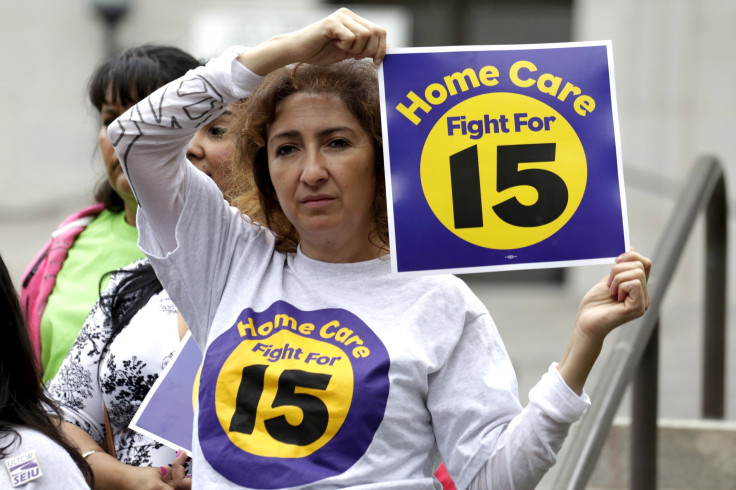California Minimum Wage Update: Gov Jerry Brown To Approve $15 Hourly Pay For State Workers

California Gov. Jerry Brown will sign a historic measure that will raise the state's minimum wage to $15 per hour. The deal, agreed to Thursday by the state Assembly and Senate, will raise the wage gradually to $15 over the next five years, the Los Angeles Times reported.
Brown is expected to sign the deal into law Monday evening, according to a news release issued shortly after the Legislature approved it Thursday.
"California is proving once again that it can get things done and help people get ahead," Brown said earlier this week when the details of the deal were announced. "This plan raises the minimum wage in a careful and responsible way and provides some flexibility if economic and budgetary conditions change."
.@JerryBrownGov quickly announces he will sign the minimum wage deal on Monday. pic.twitter.com/L5o83akL5M
— Liam Dillon (@dillonliam) March 31, 2016
The Senate passed the measure 26-12 after the Assembly did the same with a vote of 48-26, with proponents of the deal touting it as being impartial.
"At its core, this proposal is about fairness," said Senate President Pro Tem Kevin de León. Democratic Assemblyman Sebastian Ridley-Thomas shared a similar sentiment. "This is an argument about economic justice. Justice is not something that can be negotiated or compromised."
Currently, the state's minimum wage is at $10. That figure will be raised incrementally through 2020, when the $15 wages will be put in place. According to the LA Times, about 5.6 million workers in California will benefit from the raise in wages.
Assemblyman Adam Gray opposed the bill, saying while he wanted to raise the minimum wage, $15 might be too much for some small businesses to afford.
"We have systemic, decades-long double-digit unemployment,” Gray told the LA Times. "While $15 an hour probably isn’t even high enough for areas like San Francisco and parts of Los Angeles and our other urban centers, it’s too high for some small businesses and some communities."
© Copyright IBTimes 2025. All rights reserved.






















